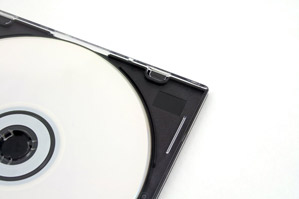
How to Convert DVD to MKV
This post provides complete information to help you learn how to convert DVD to MKV; it gives the steps you need to take to successful carry out the conversion.
Please, continue reading:
As you know, DVD is really not a file format, but an optical disc that can be used to hold a certain volume of data (usually video or audio or possibly a combination of both).
The files stored in a DVD can be of any format, e.g. MP4, MKV, MP3, and many more file formats.
Another reminder, DVD comes in different forms and recording sizes but performs the singular function of having your files stored in a good, efficient, and portable form and storage.
So, depending on the type of recording or burning you want to do, different types of DVD are ideal for whatever you want to do.
However, the major focus of this tutorial is to show you how you can convert whatever video file you have in your DVD to MKV.
So with that, we will take a paragraph or two to discuss in details what MKV file format is and what could make it a preferable option for any computer user.
What is MKV?
The Matroska Multimedia Container, written as MKV in short is a free, open-source or open-standard container format which can be used to store videos, audios, pictures, subtitles and other metadata files.
So, it could serve as a main storage or still a secondary storage for other files that might be related to the main file.
There are five basic features to note about MKV:
- It has reliable error restoration mechanisms. This is good for recovery purposes.
- Adoption of tools and libraries that can help developers add some MKV support to applications.
- Has good mechanisms that support direct playback on TVs that support USB playback.
- Possession of HTTP and RTP audio and video streaming capabilities.
- Supports more than one Operating System. So you can enjoy this file format regardless of the Operating System you are using.
Advantage of Using MKV
The first advantage of using MKV is that it supports more than one platform or operating system: Microsoft Windows and MAC OS X.
Of course, these two Operating Systems are the two commonest commercial Operating Systems used all over the world.
Other reasons why some computer users could consider using MKV include the following:
- It is totally free: it is free in the sense that you do not need any money to activate it. This is because it is open-sourced, and does not require any licensing fees.
- It has a compact file size: this is to say that the file size does not consume a lot of space in the computer hard disk.
This is sure to be a good idea considering that more applications on the system may require a lot of space to function.
So, having any other stuff on the computer that uses lesser space is a welcome idea.
- It is ideal for internet and LAN streaming: If you are in an organization where LAN is operational, then MKV is recommendable for streaming videos using this channel.
On the other hand MKV, just like MP4, is a good format to consider using for live streaming of videos on the internet.
Having said that, the only thing that you will need to know why this video format might not be a good idea is when you want to play it on a mobile phone.
In that case, you might not be lucky to have it playing on your mobile device.
Tools you need to Convert DVD to MKV?
Of course you know that you will need to have few things in place to be able to carry out a successful conversion of DVD to MKV.
Some of the tools are:
- The DVD containing the files you want to convert which could be copied to the hard disk of the PC.
- Your PC
- Good conversion software (preferably Uniconverter for optimum performance).
After getting the tools, here are the steps you can follow to do the conversion of DVD to MKV:
- Install Wondershare Uniconverter
As stated above, for stress-free performance, we will choose the Wondershare Uniconverter.
Get and Install Wondershare Uniconverter following the installation procedures from the manufacturers and launch it to start the job.
- Slot in the DVD into the PC
Remember that DVD is not a file format in itself. It is an optical disc used to store files (mostly audio and video files).
So, slot it into the DVD drive of the PC and allow the PC to detect it. You can check it by pressing Windows key + E.
This will open up all the storage devices in the PC.
- Import the files you want to convert
Note that when you launch the application, ensure that you select the Video Converter on the left.
After that, click on the drop down menu icon right next to the Load DVD which you can see from the top-left corner of the right pane.
Select the drive where the DVD is located and import all the videos you want to convert to MKV.
- Choose the output format you want (MKV in this case)
Two things you will do: go to the Video tab and select MKV file format, and also choose the resolution you want from the list of resolutions available.
- Convert the DVD to MKV
Find the File Location box at the bottom of the interface and choose your target folder (this is where the converted video will be saved).
But before then, go to the top-right corner of the screen and turn on the High Speed Conversion toggle switch to ensure high speed conversion.
After that, just click on convert button to convert the imported files.
Conclusion
The steps above are just the simple steps you need to take to convert any DVD to MKV, it’s quite simple.
A quick reminder, we skipped the Edit the Video step simply because it is not compulsory.
It is down to you if you want to edit the video, else it will not stop the complete conversion of your video file.
|
If you have a need to get a good video converter and you want some help on the one to go for, here are our top seven pick that you can check out
Check them out here:
Amazing Software for Converting Videos. |
Related Posts
 7 Best Software for Converting Videos to Various Formats
7 Best Software for Converting Videos to Various Formats




